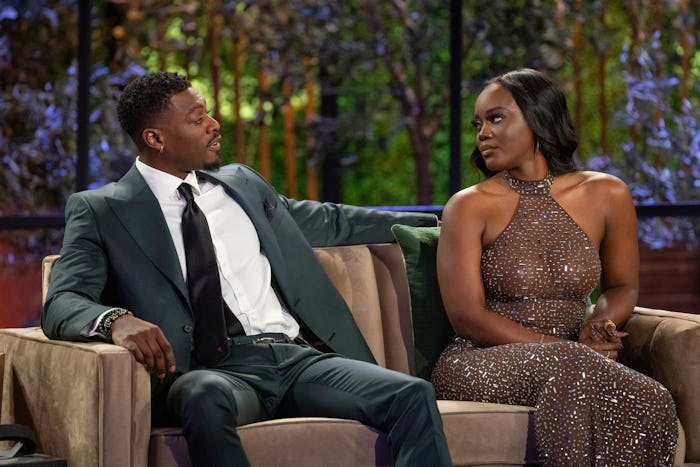Entertainment

Clay From Love Is Blind Said He’s From A “Broken Home” & I Hate It
My sons are from a broken home that was broken by me. I would break it again and again if I was given the choice.
It took six seasons of Love Is Blind on Netflix for me to connect with anyone. As a single mom you might think it would have been Jessica Batten, the first single mom to coyly dip her toe in the pod while her 10-year-old daughter cheered her on at home. But no, she was not my person. Was I surprised when the man of her choosing, Jimmy Presnell, cooled considerably when he found out she had a child? Not even a little.
What did surprise me and distress me and leave me furious, however, was how Clay Gravesande, son of a strong woman with her shit together, used his childhood in a “broken" home as an excuse for any of his rotten behavior.
It’s a phrase I still hear, far too often. “Broken home.” A toss-away qualifier people say like we’ve all held a referendum and voted and agreed that all single parent households like Clay’s are inherently broken, which would make all married households whole. Fixed. The ideal. Even Clay’s mother, my idol Margarita, called her home broken in the final episode of Love Is Blind, when Clay left AD (Amber Desiree) at the altar because he just didn’t feel like he was in a place to be a husband. It wasn’t his fault, you see, it was on account of his childhood in a broken home. Margarita was horrified. Devastated. Because, as she told Clay’s dad, Trevor, their son was “carrying his brokenness” on in his own life.
Would his home have been called broken if his parents had stayed together after his father’s infidelity? I doubt it. Because only single parent homes are broken homes. This is what we tell children who haven’t broken more than a toy in their room in their whole lives. We tell them, passively or directly, that they are products of a broken home and we imply, passively or directly, that it is up to them to rise above being broken.
My sons are not from a broken home. We are, we were, we always will be, a whole family.
My sons are from a broken home that was broken by me. I would break it again and again if I was given the choice, because I never felt more broken in the entirety of my life than when I was in a whole home. When we were the picture, the goal, the ideal. When we were so secretly miserable and eventually even outwardly miserable when no one could hold their guts in any longer. We did not live an unbroken life together when I was married. My husband and I were both broken when we started for our own private reasons and stayed broken together. When we ended our marriage, we both went on to make whole lives, separate from each other. So I’m asking now, how are we defining homes that are broken? Is it just the single mom thing, because if it is, congratulations to the 15 million children living in broken homes in the United States alone. And will these children bring this definition, a definition they did not ask for, a definition that was thrust upon them by a culture that continues to see marriage as the only path forward, into their own future? Clay has me worried this could be the case.
My sons are not from a broken home. We are, we were, we always will be, a whole family. I wasn’t waiting for someone else to fix us or define us because I never really thought we were broken in the first place. I don’t want them to use our life together as an excuse to be afraid of anything. I don’t want that finger of blame pointed at me, if I’m being honest. Because I don’t think there was anything wrong with being a single mother raising four boys on my own.
I like us. I think we have so much fun. I think we are so goddamn lucky I actually can’t believe it most days. We like the same board games and the same movies and even the same movie snacks — do you even know what a rare jewel this is for five people?
This is what I want them to remember, and I wish Clay could remember his version, too: that the bravest, the best, the smartest thing I ever did for them was to “break” our family. That if they find themselves in a marriage where they feel lost and invisible and wrong all the time some day, they will not become broken people if they choose to step away. If they choose to find a new way for themselves.
I want them to know they are not perpetuating some awful cycle of brokenness, that they are not statistics. I do not want them to deify marriage as the only path to happiness when marriage, as it stands right now, is a colossally broken institution that is not a fit for everyone.
I want them to know that I chose them, that I will always choose them. And they can choose, too.